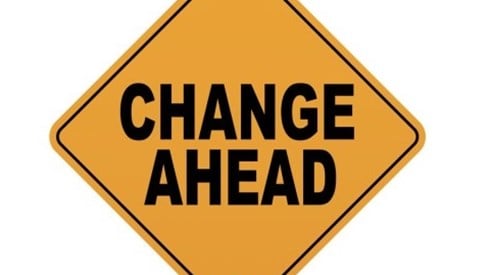The Captive Insurance Story Is One of Evolution over the Past 30 Years

March 01, 2021

Among the many changes to captive insurance over the past 30 years, the most significant is captives' transition from a risk financing tool used primarily by large multinational corporations formed only in a handful of domiciles to a vehicle used much more broadly and domiciled in a wide variety of jurisdictions.
Speaking as part of the Business Insurance 2021 World Captive Forum, Les Boughner, chairman of Advantage Insurance Management (USA), and Nicholas Dove, chairman of Davies Captive Management Limited, discussed some of the changes that have taken place in the captive insurance industry during the World Captive Forum's 30 years.
"Thirty years ago, captives were much more multinational Fortune 500 focused," Mr. Boughner told the virtual gathering.
Among the significant developments over the years were revisions to the US Tax Code in 1986 that took away many of the tax advantages US taxpayers could realize from offshore operations, Mr. Boughner said.
"Interestingly, if you sort of go through the period since then, at the time many of us thought you would start to see a loss of captives in many of the offshore domiciles," he said. In fact, while there's been some shrinkage in those domiciles, the result was that "there's really been more of a growth of captives in the United States."
"I think the initial captives we saw were fairly generic in the early days," said Mr. Dove. Over the past 30 years, though, where captive insurance companies were formed and the type of business they wrote have changed dramatically.
"One of the relatively more recent changes was the advent of segregated cell legislation in many of the domiciles," he said, allowing smaller organizations to take advantage of captive insurance.
The growth of the number of US states that now have captive laws has been good for the captive insurance industry, Mr. Boughner said. "The more choice that you have, the better it is."
In some cases, companies might face compelling reasons to incorporate a captive in their home state, he said, while other organizations might find benefits from forming their captive in a jurisdiction other than the state where they're headquartered.
Despite the number of states that now have captive insurance laws—many with a significant number of licensed captives—Vermont's unlikely to relinquish its lead among US captive domiciles, Mr. Boughner said.
"Vermont's story is a great story," he said. "Who would've thought that Vermont would be the state to drive the domestic captive industry?" Now, even with 38 states with active captive legislation, "nobody's going to catch up to them," he said.
"All of them look at Vermont and say we want to do that too. Well, it's great when you pass the captive legislation, but now you have to regulate those captives," he said. "Not all of them do it well."
Mr. Dove agreed that the growth in the number of domiciles "helped grow the industry dramatically." Initially, Colorado was "the" US domicile, he noted. "Then along came Vermont and dramatically changed the picture."
These days, the choice of forming a captive onshore or offshore is a much more involved decision than it was early on, Mr. Dove said. "Thirty years ago, when you had a choice between onshore and offshore, it tended to be a choice of whether the risk manager wanted to ski or play golf," he said. "I think there's a lot more analysis that goes into it now."
Among offshore domiciles, international financial regulation—not just insurance regulation—has created concerns for some domiciles, Mr. Dove said. "I think it's an ongoing battle for the offshore domiciles," he said. "It seems every other week somebody puts out a new blacklist."
Bermuda, the Cayman Islands, and other offshore domiciles have gone to great lengths to enhance regulations to avoid those blacklist designations, the two captive insurance experts said.
Mr. Dove said that as captive insurance has evolved, he's seen "waves of different uses of captives over the years."
Moving from a tool for large corporations initially, there was a trend of group captive formations. Now there are more innovative uses and many smaller companies forming captives with essentially no limits to the type of business that could be written in a captive today, he said.
The developments have been a natural evolution, Mr. Boughner said.
"You continue to see just great applications. We have a COVID crisis, and suddenly captives are helping their parent solve that COVID crisis," he said. Businesses also are using their captive insurance companies to address such emerging exposures as cyber risk. "You're really seeing the applications become more and more interesting," Mr. Boughner said.
Mr. Boughner said he thinks the controversy over so-called micro-captives electing to be taxed under section 831(b) of the Internal Revenue Code has limited captive insurance growth. The US Internal Revenue Service (IRS) has been applying considerable scrutiny to captives making the 831(b) election, which allows small insurance companies to be taxed only on their taxable investment income.
"Companies that have an excellent application, a private company, many of them will not form a captive because they do a Google search and see all the negative press," Mr. Boughner said.
In fact, many of the 831(b) captives are excellent companies, he said. "The majority are providing a valuable service to the owner. In many cases, if the 831(b) election was to go away, frankly we're not worried about a lot of our owners. They'd grin and say, 'It was nice while it lasted, but we're going to keep the captive.'"
Mr. Dove said he believes the 831(b) issue has focused the IRS on the captive insurance industry. "There are people who use it for totally legitimate reasons," he said. "But I freely admit I was never a fan, and I'm still not."
Going forward, the combined impact of the COVID-19 pandemic and the hardening commercial insurance market will lead to more captive insurance company formations, Mr. Dove said. "We've had tremendous interest in formations, both large and small," he said.
"Captive owners are always looking for the opportunity to use their captive and use it effectively," Mr. Boughner said. The hard market is forcing them to do so more aggressively, he said.
Gavin Souter, editor of Business Insurance, moderated the session.
March 01, 2021


